Description
ABSTRACT
An Analysis of the Six-year Limitation Period for Tax Assessment in Nigeria
Agbada S. Agbada*
To ensure that taxpayers pay the prescribed amounts of taxes, tax authorities are generally empowered to issue additional assessments on taxpayers where they discover or believe at any time that a taxable person liable to tax has not been assessed or has been assessed at a lesser amount than that which ought to have been charged. This means that a tax authority may assess a taxpayer as many times as necessary to ensure adequate taxation of the taxpayer. However, the assessment powers of tax authorities are subject to a six-year limitation period and must be exercised within this timeframe. This limitation period is, however, laden with exceptions that seem to negate the substance and essence of the limitation. This article analyses the six-year limitation period to ascertain the actual effect of the relevant statutory provisions prescribing the limitation period.
Keywords: Taxation, Assessment, Limitation period, Power of Tax Authorities.
INTRODUCTION
Tax assessment is a critical component of tax administration. Accordingly, the Federal Inland Revenue Service (“FIRS”) and the States’ Boards of Internal Revenue are empowered by relevant tax laws to issue tax assessments on taxpayers when necessary. The extent of the powers of the tax authorities to issue tax assessments, the rights of taxpayers to object to assessments and the process of resolving disputes arising from tax assessments are equally prescribed by the relevant tax laws. Most importantly, for our purposes in this article, the relevant tax laws also provide a six-year time limit for tax assessments. This limitation period is, however, laden with exceptions that seem to negate the substance and essence of the limitation.
This article analyses the six-year limitation period to ascertain the actual effect of the relevant statutory provisions prescribing the limitation period.
Tax Authorities’ Powers to Issue Tax Assessments
Under relevant tax laws, taxpayers are required to self-assess and file annual tax returns.1 Tax authorities are empowered to issue tax assessments based on the tax returns filed by taxpayers where the tax authority accepts the accuracy of the returns. 2Where, however, a tax authority doubts…
*LL.B, B.L Senior Associate, Aluko & Oyebode.
- See Companies Income Tax Act (“CITA”), s 55; Personal Income Tax Act (“PITA”), s 41 and Petroleum Profits Tax Act (“PPTA”), s 30.
- See CITA, s 65, PITA, s 54 and PPTA, s 35.

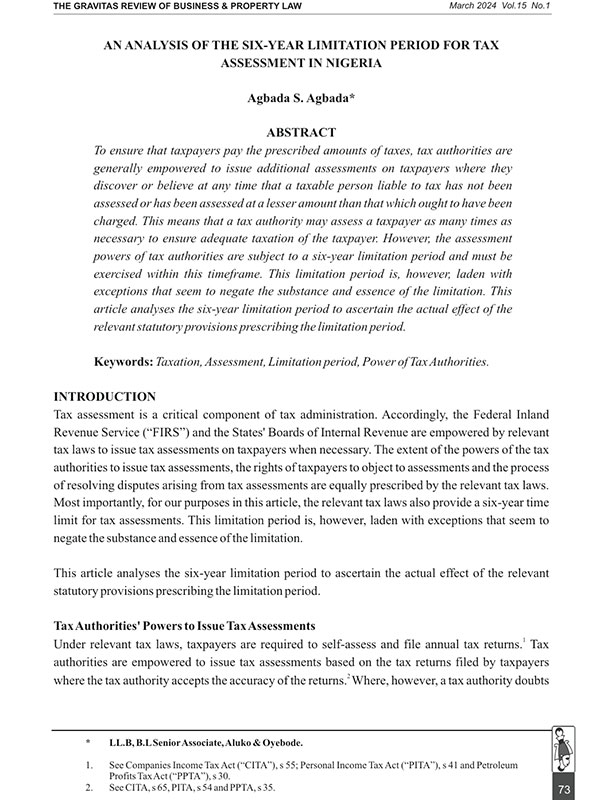
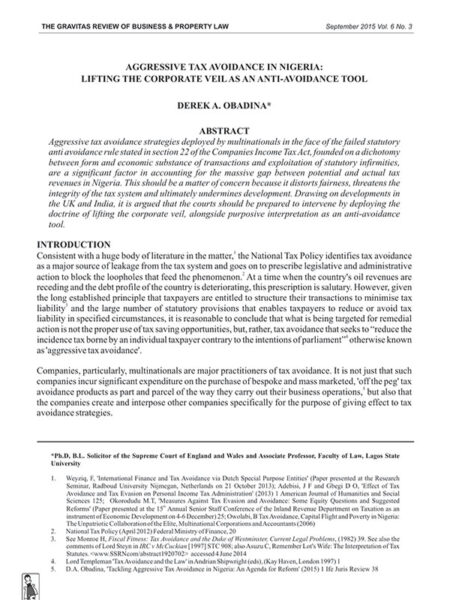
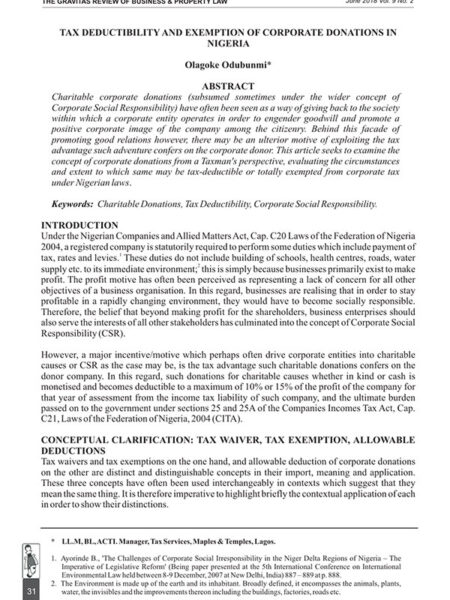
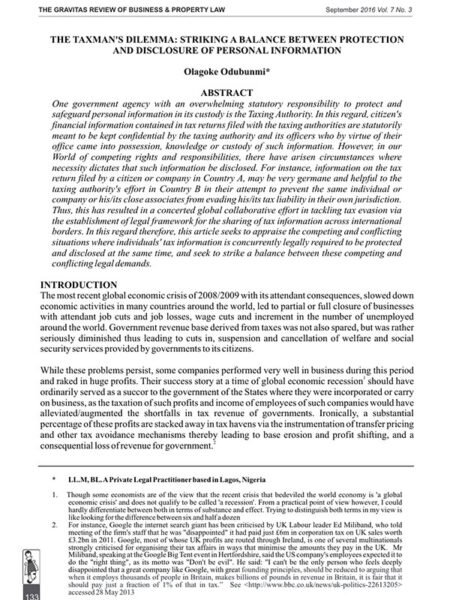
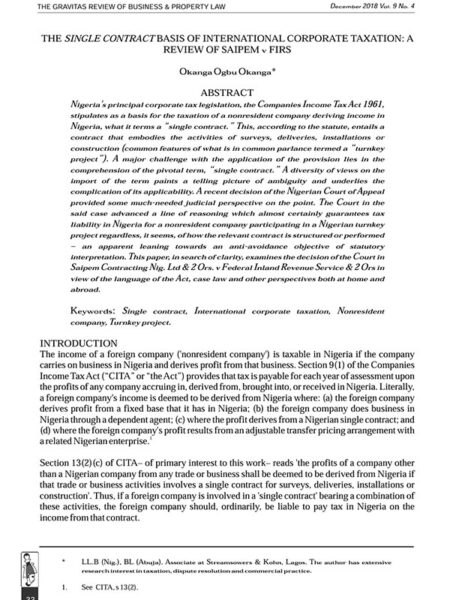


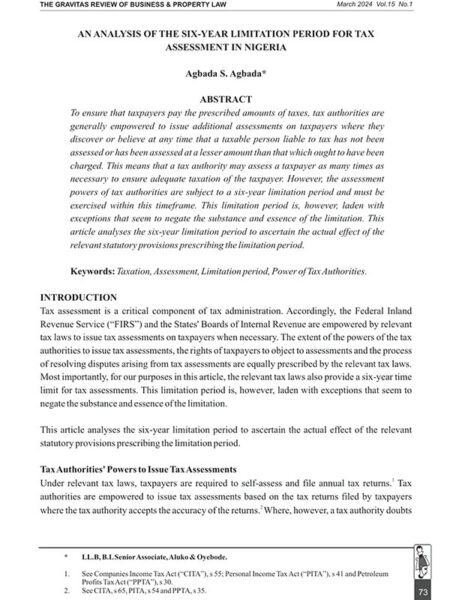
Reviews
There are no reviews yet.